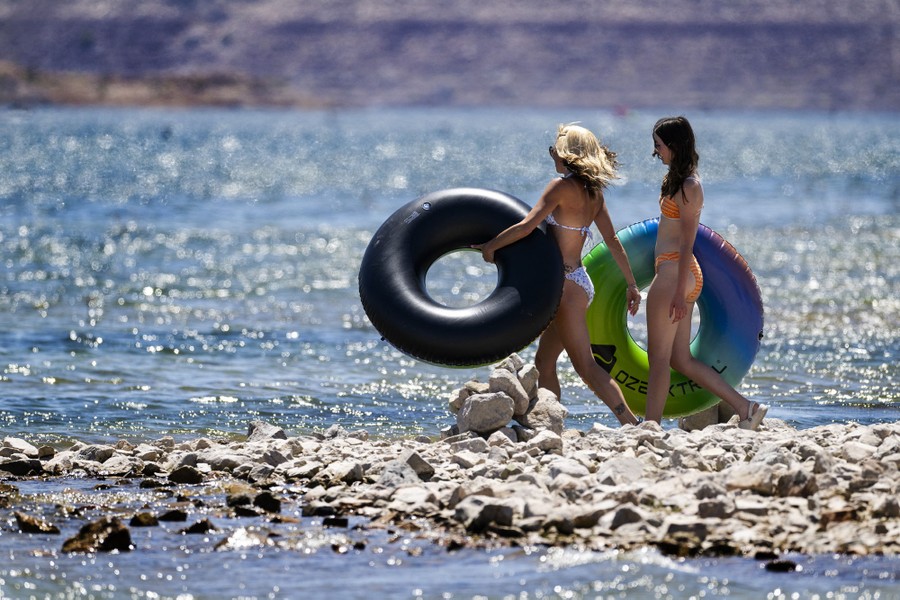Summer is the perfect time for outdoor fun, whether you’re planning a trip to the beach, attending the Delaware State Fair, or simply enjoying the sunshine. However, extreme heat and humidity can pose serious health risks if you’re not prepared. To make the most of the season while keeping yourself safe, follow these essential tips to stay cool, hydrated, and comfortable during hot weather.

Understanding the Dangers of Extreme Heat
Excessive heat exposure can lead to dehydration, heat exhaustion, and even heatstroke. High temperatures combined with humidity make it harder for the body to cool itself down, increasing the risk of overheating. Recognizing the warning signs early can help prevent serious health issues.
Symptoms of Heat-Related Illnesses:
- Heat Exhaustion: Dizziness, nausea, excessive sweating, and muscle cramps.
- Heatstroke: High body temperature, confusion, rapid heartbeat, and loss of consciousness.
- Dehydration: Dry mouth, dark-colored urine, fatigue, and headache.
8 Essential Tips to Stay Cool This Summer
1. Plan Your Outdoor Activities Wisely
Try to schedule outdoor activities during the cooler parts of the day—early morning or late evening. The midday sun is at its peak and can be dangerous if you’re exposed for too long.
2. Stay Hydrated
Drinking plenty of water is crucial in hot weather. Choose water or sports drinks over sugary sodas and caffeinated beverages, which can contribute to dehydration. Carry a reusable water bottle and sip regularly throughout the day.
3. Eat Light and Healthy Meals
Heavy meals can make you feel sluggish and increase your body temperature. Instead, opt for light meals rich in water content, such as fruits, vegetables, and salads. Avoid alcohol and caffeine, as they can dehydrate you.
4. Protect Your Skin with Sunscreen and Clothing
Sunscreen is a must, no matter your skin tone. Apply a broad-spectrum SPF 30+ sunscreen at least 30 minutes before going outside and reapply every two hours. Wear light-colored, loose-fitting clothing, a wide-brimmed hat, and sunglasses for added protection.
5. Dress for the Heat
Lightweight, breathable fabrics like cotton or moisture-wicking materials help keep your body cool. Dark-colored and tight-fitting clothes trap heat, making it harder for your body to regulate its temperature.
6. Find Shade and Cooling Spots
Whenever possible, take breaks in shaded areas or air-conditioned spaces. At outdoor events like fairs, look for cooling stations, misting tents, or indoor exhibits where you can cool off.
7. Wear Proper Footwear
Hot pavement can burn your feet, especially if you’re wearing flip-flops or sandals. Opt for closed-toe shoes with good ventilation to protect your feet from heat and blisters.
8. Be Prepared for Emergencies
If you or someone around you starts showing signs of heat-related illness, take immediate action. Move to a cooler area, drink water, and seek medical attention if symptoms worsen.
Navigating Social Settings in the Heat
Tips for Staying Safe at Crowded Events Like the Delaware State Fair
- Wear bright colors so you and your family members can be easily spotted in a crowd.
- Designate a meeting place in case anyone gets separated.
- Use strollers or wagons for young children who may tire easily.
- Carry a portable fan or misting bottle for extra cooling.
- Look for shaded rest areas and take breaks when needed.
What to Do in Case of Heat-Related Emergencies
If you or someone else experiences severe symptoms of heat exhaustion or heatstroke, seek medical help immediately. Emergency services, such as Bayhealth’s 24-hour emergency departments, are available to provide critical care when needed.
Frequently Asked Questions:
1. How much water should I drink in hot weather?
It’s recommended to drink at least 8-10 glasses of water daily, but in extreme heat, increase your intake to avoid dehydration.
2. What are the best foods to eat to stay cool in summer?
Foods with high water content, such as watermelon, cucumbers, leafy greens, and yogurt, help keep your body hydrated and cool.
3. How can I tell if I have heat exhaustion?
Signs include heavy sweating, weakness, nausea, dizziness, and headache. If you experience these symptoms, rest in a cool area and hydrate immediately.
4. What is the best clothing to wear in extreme heat?
Light-colored, loose-fitting clothes made of breathable fabrics like cotton or linen help regulate body temperature.
5. Is it safe to exercise outdoors in summer?
Yes, but only during the cooler hours of the day. Stay hydrated, wear appropriate clothing, and take frequent breaks.
6. How can I keep my kids cool at outdoor events?
Dress them in lightweight clothing, provide plenty of water, use strollers with shades, and take breaks in air-conditioned areas.




